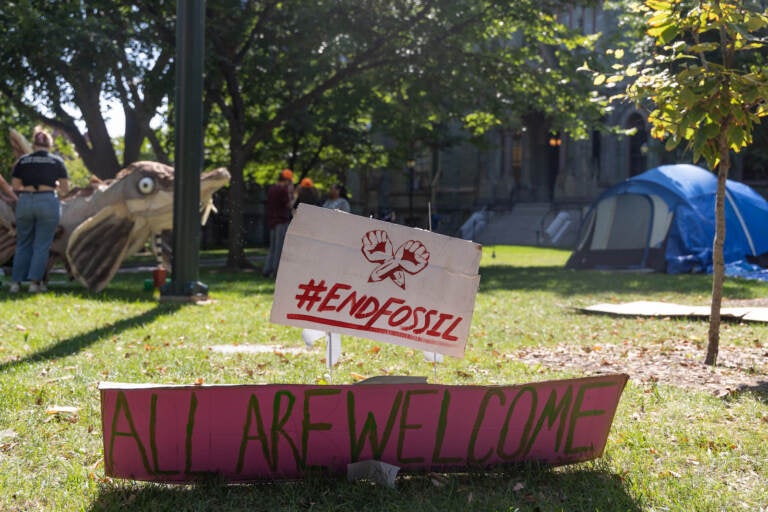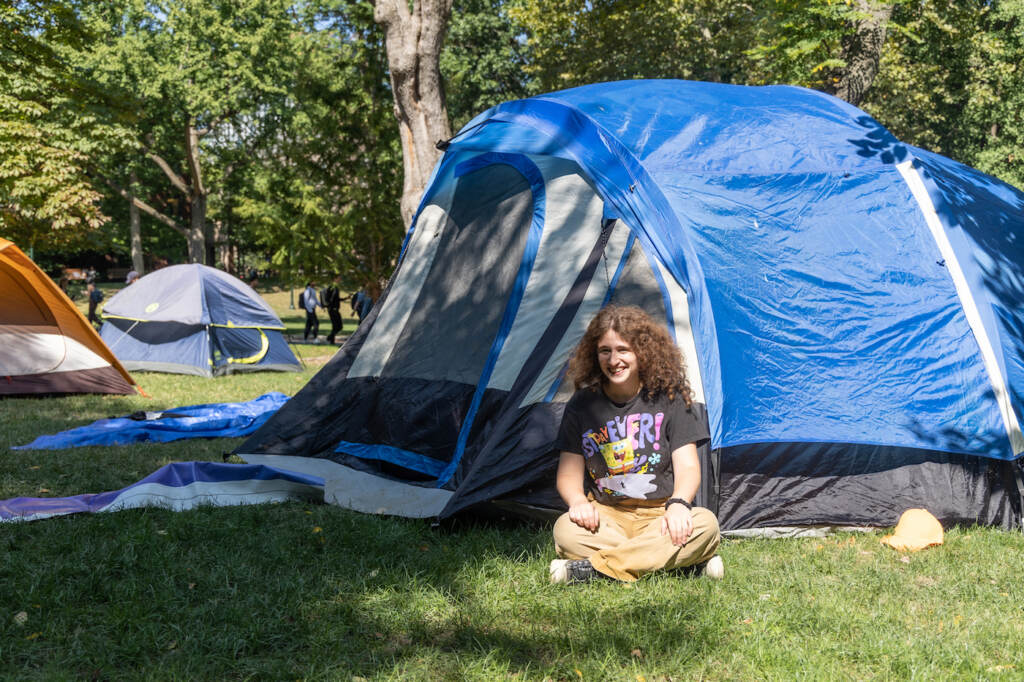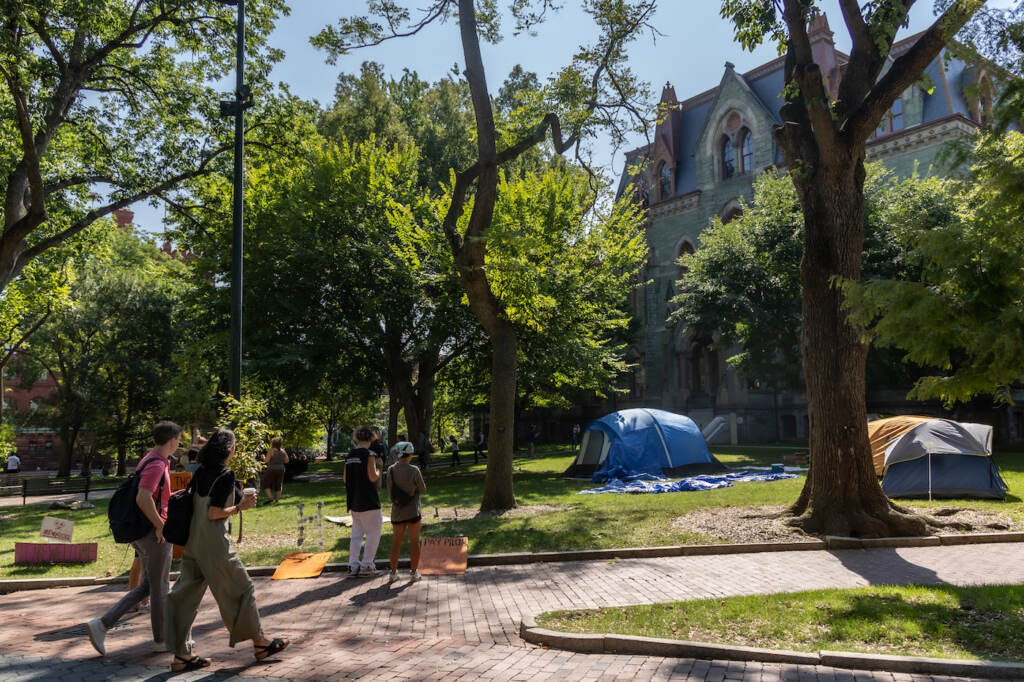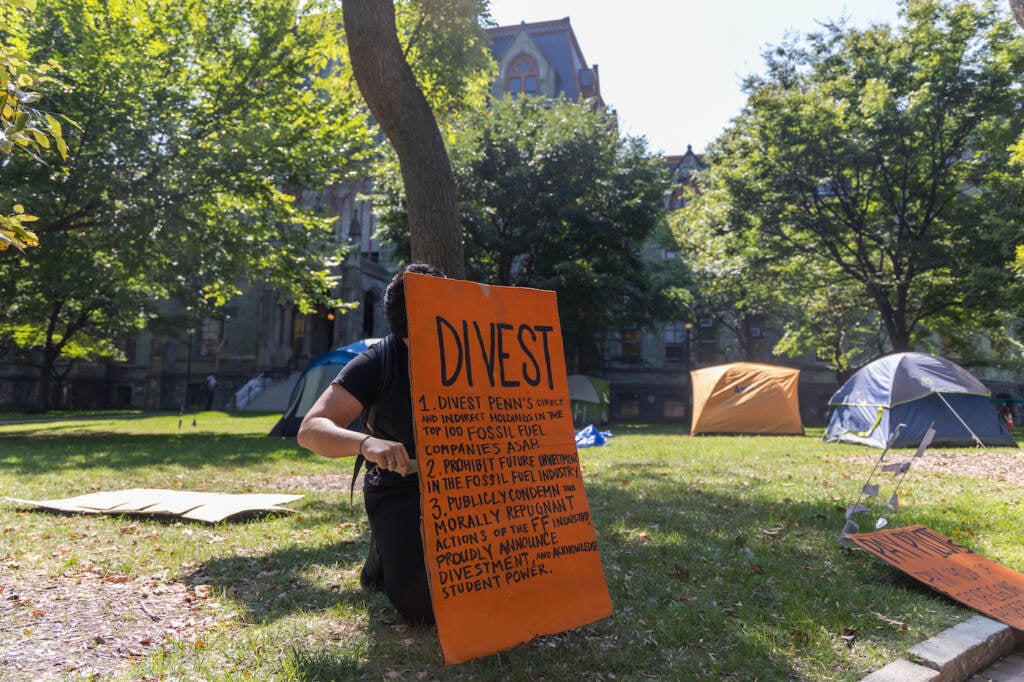Penn students camp out to demand university take further action against climate change
Nearly a dozen students slept on a campus green Wednesday night, according to an organizer. Among their demands for UPenn: divest from fossil fuels

Protesters demanding the University of Pennsylvania divest from fossil fuel companies formed an encampment outside the school's administration building, camping into the morning of September 15, 2022.(Kimberly Paynter/WHYY)
University of Pennsylvania students camped out on a campus green Wednesday night to demand the school act on climate change. Student activists are calling for the school to pull its endowment money out of any investments in the fossil fuel industry, primarily due to the fact that burning fossil fuels contributes to global warming.
“They’re an industry that Penn shouldn’t support,” said Sarah Sterinbach, a junior studying environmental science and an organizer with Fossil Free Penn. “I think it’s pretty easy for them to say, like, we don’t support this.”

The student group has been pushing the school to divest from fossil fuels for years. In 2016, a committee of Penn students, teachers, staff, and alumni decided the school would continue to invest in fossil fuels, because the industry did not meet their definition of a “moral evil,” such as apartheid or genocide. Then-chair of the Board of Trustees told students that this high bar was necessary to avoid Penn’s endowment being used to make “public policy statements,” according to a report from The Philadelphia Inquirer.
In 2020, the school announced it had no direct investments in thermal coal or tar sands and did not expect to in the future, which student activists said they saw as a small win.
Fossil Free Penn members camped out for six days in April, with the goal of engaging more students.

In addition to calling on the university to divest from fossil fuels, students are also demanding the school make payments in lieu of taxes, beyond the $100 million the school committed in 2020 to donate to the school district, and contribute $5 to $10 million to preserving the UC Townhomes as affordable housing. The 70-unit apartment building with an expiring affordable housing contract is located near Penn’s campus, in an area of West Philadelphia where the city once demolished hundreds of homes to make room for campus space and a science and technology hub.
“We believe that it’s Penn’s responsibility, frankly, to come in and try to save the last remaining parts of this Black Bottom community,” said Kenny Chiu, a sophomore at Penn studying Urban Studies.

Just a few students remained at the protest site Thursday morning, although Sterinbach said close to a dozen camped out overnight. She said they plan to stay until their demands are met.
“We don’t want to be here in the cold either, but we’ll do it if we need to,” she said.
Several other academic institutions have committed to divest from fossil fuels, including Harvard.

According to Penn’s latest annual report, the school has over $923 million invested in the natural resources sector, which student activists say includes fossil fuels. A Penn spokesperson did not respond to a request for more information about the university’s investments and about whether school leaders plan to respond to students’ demonstration.
The school’s total endowment is $20.5 billion, as of last June. Most of the endowment is put into a pooled investment vehicle known as the Associated Investments Fund, managed by the school’s Office of Investments and overseen by a board of alumni and university leaders.

WHYY is your source for fact-based, in-depth journalism and information. As a nonprofit organization, we rely on financial support from readers like you. Please give today.








